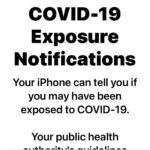Loss of smell and taste can be alarming, but understanding the causes and potential treatments can offer reassurance. This article explores the reasons behind this sensory disruption, ranging from common illnesses to more complex conditions. We’ll also delve into potential remedies and when to seek medical advice.
Common Causes of Smell and Taste Loss
A sudden inability to taste or smell often stems from:
- Upper Respiratory Infections: Viruses like the common cold or flu can inflame nasal passages, hindering smell receptors. This often leads to a diminished sense of taste as well, since smell plays a crucial role in perceiving flavors.
- Allergies: Allergic reactions can trigger nasal congestion and inflammation, similarly impacting smell and taste.
- Nasal Polyps: These noncancerous growths in the nasal lining can obstruct airflow and impair smell.
- Sinusitis: Inflammation of the sinuses can also lead to congestion and reduced ability to smell and taste.
Other Potential Causes
While less common, other factors can contribute to loss of smell and taste:
- Medications: Certain drugs, such as some antibiotics and antihistamines, can list altered smell and taste as side effects.
- Head Injuries: Trauma to the head can damage olfactory nerves, responsible for transmitting smell signals to the brain.
- Neurological Conditions: In rare cases, conditions like Parkinson’s disease, Alzheimer’s disease, or multiple sclerosis can affect the sense of smell.
- Aging: As we age, our sense of smell naturally declines.
Cleaning Your Nose: A Simple Remedy
If an infection or allergy is the culprit, rinsing your nose with a saltwater solution might help. Here’s how:
- Boil a pint of water and let it cool.
- Dissolve a teaspoon each of salt and baking soda in the cooled water.
- Wash your hands thoroughly.
- Pour a small amount of the solution into your cupped palm.
- Gently sniff the solution into one nostril at a time, allowing it to drain out. Closing the other nostril with a finger can be helpful.
- Repeat several times daily. Prepare a fresh solution each day.
Pre-mixed saltwater solution sachets and nasal rinsing devices are available at most pharmacies.
When to See a Doctor
Consult a doctor if:
- Your sense of smell doesn’t return within a few weeks.
- You experience other symptoms, like severe headaches or nasal discharge.
Treatment Options
Treatment depends on the underlying cause. Steroid nasal sprays or drops may be prescribed for sinusitis or nasal polyps. In some cases, smell training, a type of therapy designed to help regain smell function, may be recommended. Unfortunately, not all cases are treatable, and the loss of smell and taste may be permanent.
Safety Considerations with Anosmia
Loss of smell (anosmia) poses safety risks. You might not be able to detect:
- Gas leaks
- Smoke from a fire
- Spoiled food
Install smoke and gas detectors and be extra vigilant about food safety.
Conclusion
Loss of smell and taste can be a temporary inconvenience or a sign of a more serious issue. Understanding the potential causes and seeking medical advice when necessary can lead to effective management and improve your quality of life. Remember to consult with a healthcare professional for any concerns related to your health.
